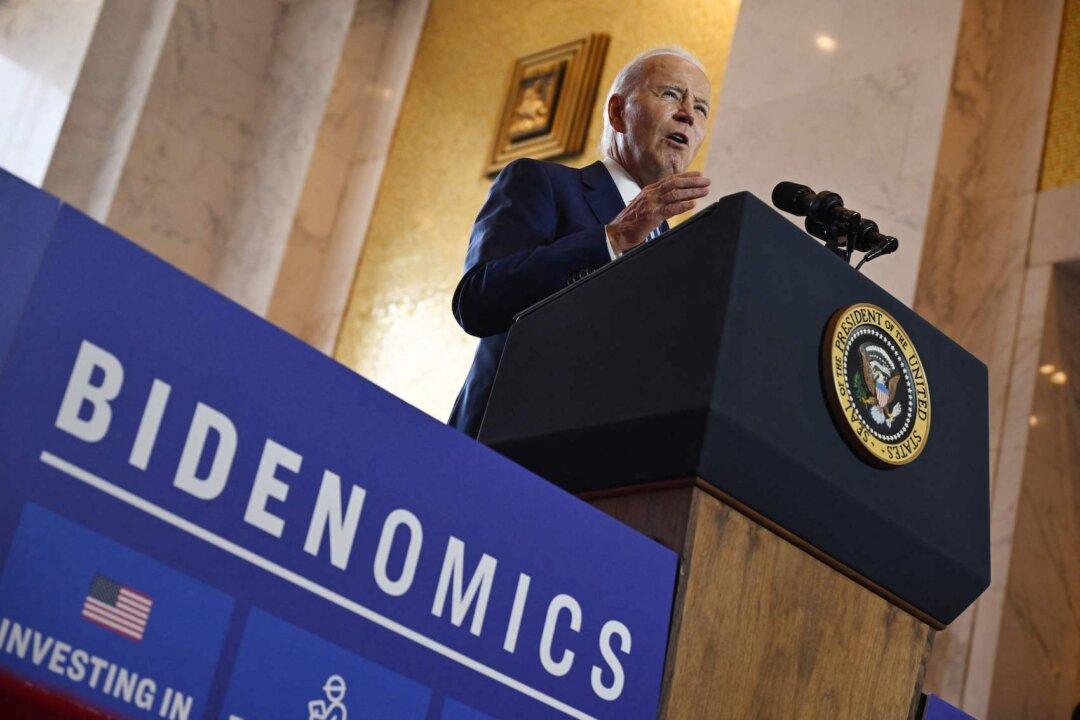JPMorgan Chase chief executive Jamie Dimon isn’t fully convinced by the economic plan President Joe Biden is touting as a historic accomplishment.
In an interview with The Economist’s editor-in-chief Zanny Minton Beddoes, which was published on Tuesday, Mr. Dimon was asked whether he believes “Bidenomics” is a success.





